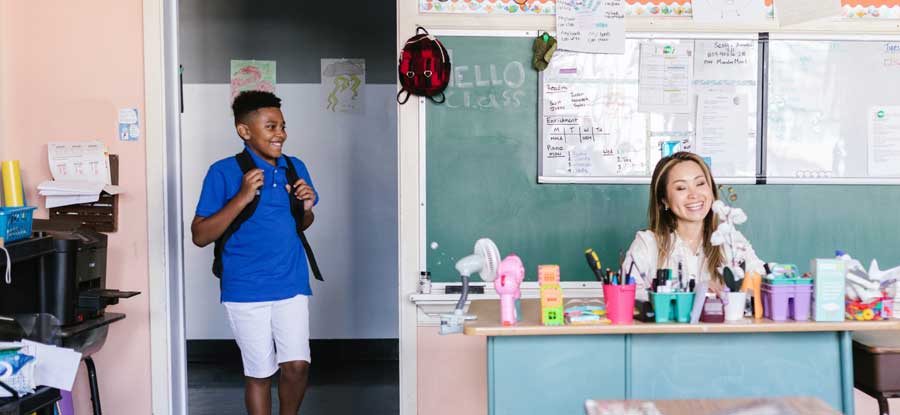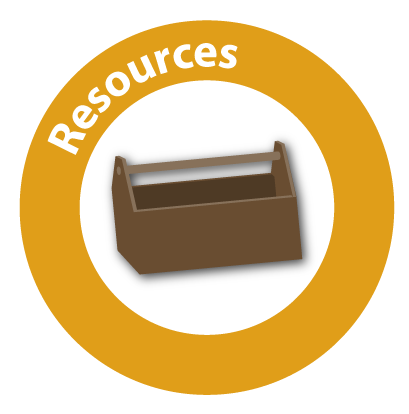|
| | Resources and Frequently Asked QuestionsFind resources to help your family or get answers to frequently asked questions. Resources
Organizations
Frequently Asked QuestionsClick the questions below to see answers to frequently asked questions ▸ Who can diagnose ADHD?ADHD diagnoses are made by licensed medical or mental health professionals. These may include pediatricians, neurologists, counselors, social workers, psychologists and psychiatrists. This article from ADDitude explains how ADHD is diagnosed. For more information on the different types of mental health professionals who work with families, see our guide to choosing a mental health provider. For help finding a mental health provider near you, check out our local provider directory or request an Ask Us 1:1 session with a Connecting for Kids Family Resource Specialist. Finally, this guide can help families who want to prepare for a diagnosis appointment. ▸ How are attention issues and ADHD treated?Treatment for attention issues and ADHD will be different for each child. Families may benefit from:
For help finding a mental health provider near you, check out our local provider directory or request an Ask Us 1:1 session with a Connecting for Kids Family Resource Specialist. ▸ How can counseling help my child?When choosing a mental health professional to work with your child, one of the first things you should think about are the goals that you (and your child) have. Mental health professionals help children with attention issues or ADHD in many ways, including:
Sometimes it makes more sense for a parent or caregiver to work with the mental health professional instead of the child. When adults attend counseling to help their children, they often focus on:
Identifying your role and goals are two important steps in partnering with a mental health provider. To learn more ways to make your relationship a success, listen to this podcast or check out our four-step guide. ▸ Medication isn’t right for our child. What else is there?While medication can help to control ADHD symptoms, it’s not right for every child. Some families choose natural ways to manage symptoms, including diet, exercise, or supplements. CHADD offers this fact sheet on complementary medicine and ADDitude has many resources on natural treatments for ADHD. As always, before starting any new treatment with your child, it’s best to check first with your family’s primary care provider. ▸ How do I get support at school?Families who are concerned about school should start with the School Resource Guide. This guide includes red flags, solutions and frequently-asked questions. ADDitude offers this article to explain the difference between IEPs and 504 plans for students with ADHD. For some examples of accommodations and modifications that can be used to support your child in school, check out this article from Understood. ▸ My child is struggling with friendships. How can I help?It’s not unusual for kids with attention issues or ADHD to have problems with making or keeping friends. This is because children with attention issues sometimes act before they understand social situations. It can also happen because they’ve missed important social cues or because they are struggling to regulate their emotions. Many children with attention issues or ADHD benefit from social skills instruction. Some families work with speech therapists or counselors to practice social skills 1:1 or in groups (you can find these in our provider directory). Families can also benefit from learning about social skills from books or podcasts. ▸ My child has some challenging behaviors. What can I do?First of all, know that you’re not alone. Kids with ADHD or other developmental disabilities often struggle with challenging behaviors. According to Dr. Ross Greene, a leading child psychologist, this is because the kids have not yet developed the skills to do better. Some families help their children to do better by providing support for them. Our Behavior Resource Guide is a great place to learn about the different ways to support your child. Dealing with challenging behaviors can be hard, so it’s also important to care for yourself. Connecting for Kids offers a number of support programs, or you can learn coping strategies on your own with this guide. ▸ My child is struggling with homework (or another task).Many children with attention issues or ADHD face challenges with completing homework or turning it in on time. That’s because activities like homework follow a bunch of little steps that are all managed by something called “executive function.” Executive function (EF) is the planning part of your brain. It allows you to see your goal and all of the steps it’s going to take to reach that goal. And for kids with attention issues or ADHD, EF tends to develop a lot more slowly – some experts believe that the delay is 2-3 years! When kids struggle with EF, it’s important to help them learn to organize and manage tasks using different tools, like the ones described in this podcast. It can also help to work with an Occupational Therapist who has experience with EF, or with an EF coach. For help finding a provider near you, check out our local provider directory or request an Ask Us 1:1 session with a Connecting for Kids Family Resource Specialist. |
Back to the Attention Issues & ADHD Guide.

